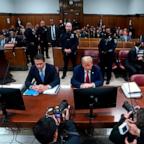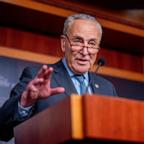How Malala Yousafzai's Courage Inspired a Nation: 'We Are No Longer Afraid'
Yousafzai inspired communities to protect schools, fight for girls' education.
Oct. 7, 2013 — -- When the Taliban sent a gunman to kill a 15-year-old girl because she fought publicly for girls' education, they intended to instill fear in anyone who wanted to educate young Pakistani women.
The bullet missed her brain, and not only has Malala Yousafzai become an international symbol of inspiration and bravery, but her survival instilled educators with courage -- and is slowly helping make Pakistani schools safer.
"They thought that the bullets would silence us, but they failed," Malala said in a speech at the United Nations on her 16th birthday. "The terrorists thought they would change my aims and stop my ambitions. But nothing changed in my life except this: weakness, fear and hopelessness died. Strength, power and courage was born."
Click here for Malala's speech at the U.N.
'No One Should Be Shot for Going to School'
Northwest Pakistan, where Yousafzai lived and almost died, has been one of the most dangerous places on the planet to go to school -- especially for young girls. In 2010, Taliban threats ran so high, nearly 1,000 government and private schools closed and more than 120,000 girls lost access to school, according to UNICEF.
But today, education advocates argue that Yousafzai's survival -- combined with military offensives that eliminated Taliban safe havens -- reduced those threats. In surviving, Yousafzai inspired entire communities to protect their schools and passionately fight for a girl's right to be educated.
"The clear message that is being sent by government, individuals, by amazing people like Malala is that we are not going to stop fighting for education," Shirin Lutfeali, a specialist in education and literacy for Save the Children who works in Pakistan and across the region, told ABC News. "She has become a symbol of change: They are going to blow up schools, but we are no longer afraid."
That fearlessness was facilitated not only by Malala but also by the Pakistani military pushing out militants who targeted or took over schools. By 2012, after the military's operations, the number of schools destroyed dropped to 30, UNICEF said.
"There has been a reduction in attacks. But that's not because the Taliban decided to be nice," said Mosharraf Zaidi, who leads an education campaign group in Islamabad. "It's because they realize that attacking schools is deeply despised by ordinary Pakistanis and because various Pakistan Army campaigns of 'clear and hold' have worked."
That is not to say the threats have ended.
As long as the attacks continue, campaigners acknowledge they have to fight the fear that forces some parents to keep their daughters at home.
Nazli's death sparked a campaign by the U.N.'s special envoy for global education, former British Prime Minister Gordon Brown. He launched a petition demanding more protection for teachers and girls. Yousafzai and her father, Ziauddin, were the first to sign.
Brown said he feared "a wave of threats, intimidation, burnings and bullets."
"No one should be shot," he said, "for wanting to go to school or wanting to teach girls."
To sign the petition, click here.
In response, some Pakistani schools have become bunkers, ringed by high walls and guarded by armed gunmen. Others have chosen a low-profile approach: leaving schools unmarked, or even hiding them in living rooms.
Later that same night, speaking at the Clinton Global Initiative, the teenager who has become a global icon of courage challenged world leaders to elevate education over war.
"Instead of sending weapons, instead of sending tanks to Afghanistan and all these countries which are suffering from terrorism, send books," she said. "Instead of sending tanks, send pens. Instead of sending soldiers, send teachers. This is the only way we can fight for education."
For more information on Malala, visit http://www.malalafund.org/




